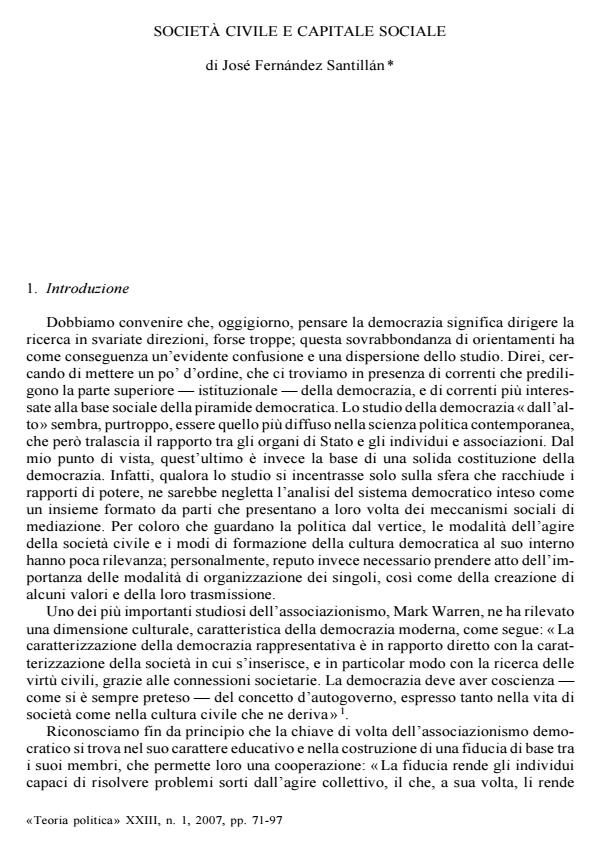Società civile e capitale sociale
Journal title TEORIA POLITICA
Author/s José Fernàndez Santillàn
Publishing Year 2007 Issue 2007/1
Language Italian Pages 27 P. 71-97 File size 89 KB
DOI
DOI is like a bar code for intellectual property: to have more infomation
click here
Below, you can see the article first page
If you want to buy this article in PDF format, you can do it, following the instructions to buy download credits

FrancoAngeli is member of Publishers International Linking Association, Inc (PILA), a not-for-profit association which run the CrossRef service enabling links to and from online scholarly content.
The study of civil society nowadays is done in many directions, probably so many of them. This essay, that represents one of these directions, is centered in understanding the concept in terms of the separations of the spheres mentioned by Jürgen Habermas. Civil society, therefore, is an autonomous sphere, different from the State and the Economy, with its own logic based on culture. Derived from its behavior, there is a strong link with the concept of social capital which refers to the presence or absence of collaboration among persons. Associationism, pluralism and democracy are also basic ideas for the development of civil society and social capital. Given this theoretical basis, the further discussion is centered on Putnam´s ideas on social capital which, for many analysts, are influenced mostly by communitarism. The essay demonstrates that his ideas have a strong tendency of egalitarian liberalism.
José Fernàndez Santillàn, Società civile e capitale sociale in "TEORIA POLITICA" 1/2007, pp 71-97, DOI: